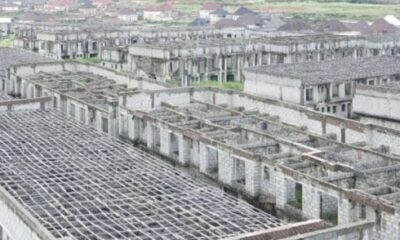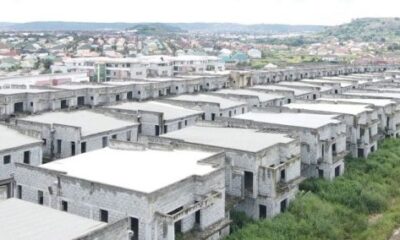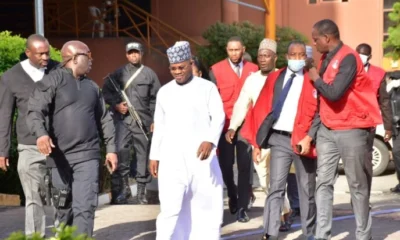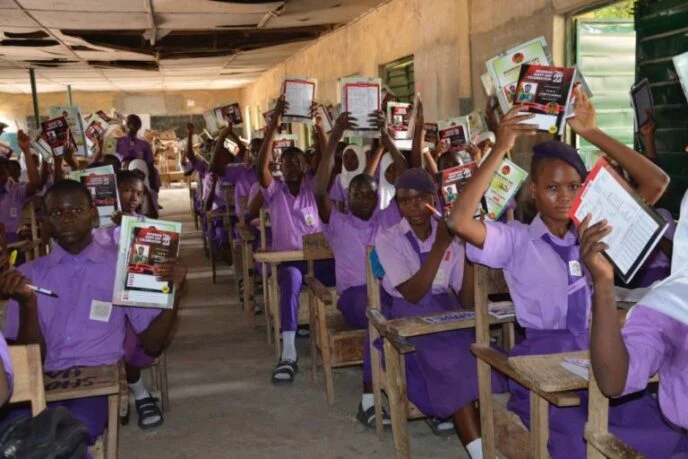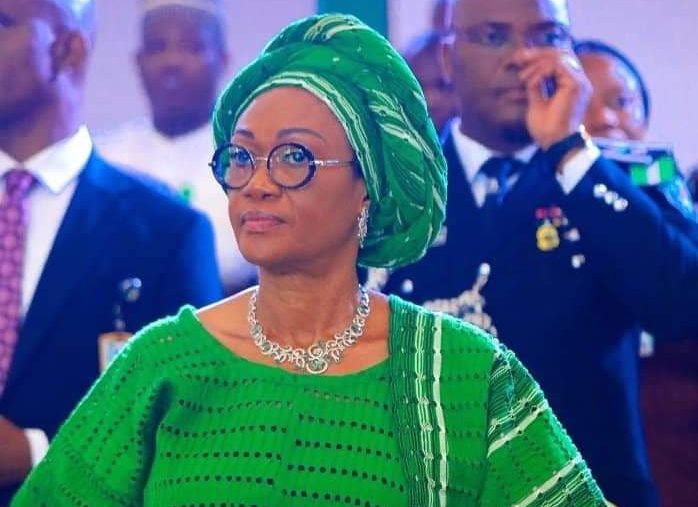Fresh facts have emerged on how seven government officials looted public funds from the National Emergency Management Agency (NEMA) running into billions of naira. The officials have already been suspended by the governing board of the agency and are being investigated by the Economic and Financial Crimes Com-mission (EFCC).
A top Presidency source yesterday confirmed to New Telegraph that a detailed report on how the officials misappropriated the funds has been submitted to President Muhammadu Buhari for consideration.
“The report submitted to the President shows the enormity of the crimes committed by the officials which comprised misappropriation of public funds, frivolous claims of personal emoluments and conspiracy with the other officials to short-change the Federal Government of due revenues, among others,” the Presidency stated
On the former NEMA Director General, Mr. Sani Sidi, the report indicated that he maintained 20 different accounts in various banks. “EFCC found suspicious deposits amounting to $164,000 in his domiciliary account at Standard Chartered Bank alone, all within 18 months, i.e., between January 2014 and June 2015. “This almost averages out at $10,000 per month.
At the same time, he had up to £58,000 in his pound sterling account. He faces allegations of misappropriation of public funds, frivolous claims of personal emoluments and conspiracy with the other officials to shortchange the Federal Government of due revenues.”
On the suspended Director of Finance and Accounts, Akinbola Hakeem Gbolahan, the Presidency stated that he maintains many bank accounts with questionable transactions.
“EFCC, the report indicated, has noted in particular his account in GTBank where suspicious deposits were found, totalling N27,650,000 which is, in addition, the over £37,000 and $120,000 found in his domiciliary accounts, and his naira account which has several suspicious deposits in excess of N50 million, much of which flowed directly from NEMA,” the source stated.
For the Acting Director of Special Duties, Mr. Umesi Emenike, findings from the report revealed that funds meant for programmes and maintenance of the South- South zonal operations of NEMA under his supervision were paid directly into his personal accounts.
The government stated that 14 of the accounts have been discovered by EFCC in various banks, instead of the Zonal Office Account. “And he was found to have withdrawn freely in cash, by electronic transfers or through ATM machines, without any evidence of the money being used for NEMA activities,” the report said.
The report also shows that his subordinate, the Zonal Accountant, also made several cash lodgements into the personal account of Mr. Emenike. “About N238 million has so far been traced from NEMA directly to Mr. Emenike’s personal accounts which were placed in fixed deposits and used freely by the Ag. Director,” it said.
The report also revealed that the Director of Risk Reduction, Mr. Alhassan Nuhu, also maintained five bank accounts which were apparently used as conduits to receive and distribute money from NEMA’s coffers. According to the report, so far, Mr. Nuhu has not been able to give satisfactory account of the transactions, including NEMA’s funds moving through him to a company called Dambo Farms Limited.
“The case of the Pilot in charge of NEMA’s Air Ambulance is especially interesting. His name is Mamman Ali Ibrahim. On his own, he commercialized both the NEMA Air Ambulance and Helicopter.
“The report further indicates that EFCC traced at least N285 million to him, of which only N63 million was paid to the Accountant General’s Office and another N11 million was paid to NEMA, but the rest cannot be accounted for,” the Presidency said. According to the report, some of the money was, however, channelled to his family members through his company, Aerocare West Africa Limited, while others in foreign exchange were directly traced to the former’s accounts.
The report also indicted the Chief Maintenance Officer, Mr. Ganiyu Yunusa Deji, who was in charge of fuel supplies to NEMA Generators and was found to have been receiving regular returns into his personal account from the supplier, Rekimat Global Resource Limited. It was also noted in the report that since Mr. Ganiyu Yunusa was suspended, the fuel that used to last for one week now lasts for more than a month.
There is also the case of M. Kanar Mohammed, the Director of Welfare. His six bank accounts, according to the Presidency, were found to be replete with NEMA funds, including a N214 million meant for displaced traditional rulers in the North- East, N184 million paid by him to one Crystal Chambers and N29.5 million paid by him to a former minister, Abdul Bulama.
The report, however, indicated that all the indicted officers are still under investigation mainly by EFCC and their suspension was obviously to ensure they don’t remain in office to tamper with evidence in the process of due investigation.
“It is, therefore, expected that the final report of investigation will soon be ready, following which the seven NEMA suspended directors will face criminal prosecution,” the source said.
The source, who pleaded anonymity, said the seven officials that are aware of the report have been lobbying members of the House of Representatives to ensure that they are not found wanting by the EFCC which is investigating the matter. He stressed that all the seven officials are bent on covering up the matter.
Explaining further, the source said that details of the report revealed that the affected persons, in league with the former Director General of NEMA, illegally procured various papers from NEMA files in their bid to exonerate themselves. The source also noted that the officials, in doing so, intend to be in a better position to challenge their suspension, claiming they were innocent whistleblowers being victimized by the board.

 BIG STORY1 day ago
BIG STORY1 day ago
 BIG STORY3 days ago
BIG STORY3 days ago
 BIG STORY1 day ago
BIG STORY1 day ago
 BIG STORY5 days ago
BIG STORY5 days ago
 BIG STORY3 days ago
BIG STORY3 days ago
 BIG STORY18 hours ago
BIG STORY18 hours ago
 BIG STORY3 days ago
BIG STORY3 days ago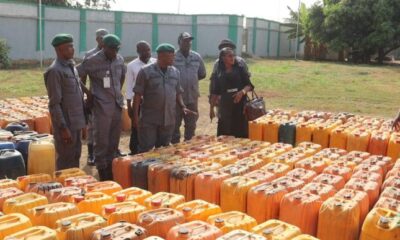
 BIG STORY3 days ago
BIG STORY3 days ago










